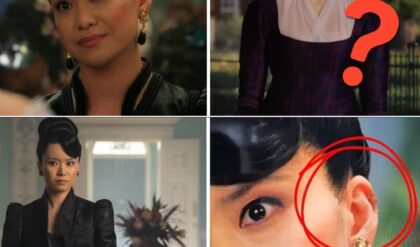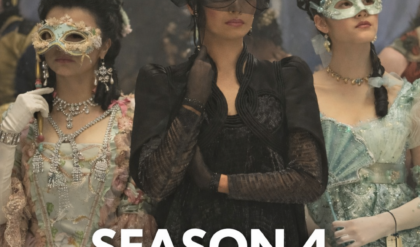😡 Social Media EXPLODES Over Sydney Sweeney’s ‘Eugenics’ Ad Nightmare! 😡
Outrage boils as fans slam her American Eagle campaign as racist propaganda—hidden messages on genes sparking fury! 😱 Is this a tasteless flop or overblown drama? Peek into the storm tearing the internet apart… 👖🔥

Introduction: A Campaign That Ignited a Firestorm
In July 2025, American Eagle Outfitters launched its fall denim campaign featuring Sydney Sweeney, the 27-year-old actress known for her roles in “Euphoria” and “Anyone But You.” Titled “Sydney Sweeney Has Great Jeans,” the ads played on a pun between “jeans” and “genes,” showcasing Sweeney in provocative poses. What was meant as playful marketing quickly devolved into a social media maelstrom, with users condemning it as a “distasteful and racist message” promoting eugenics. The backlash, amplified on platforms like TikTok, X, and Instagram, accused the campaign of evoking white supremacist ideologies through its wordplay and imagery. As outrage spread, American Eagle stood firm, but the controversy highlighted deeper cultural tensions around beauty standards, race, and advertising ethics in 2025.
The Campaign: A Pun Gone Wrong?
The ads featured Sweeney in everyday scenarios: wriggling into jeans on a couch, leaning over a Mustang engine, or lounging with a puppy. A key video had her narrating, “Genes are passed down from parents to offspring, often determining traits like hair color, personality, and even eye color. My jeans are blue,” with “genes” swapped for “jeans” on a billboard. American Eagle’s chief marketing officer hailed Sweeney as their “biggest get,” drawing inspiration from 1980s Calvin Klein campaigns with Brooke Shields. The campaign included a charitable twist: proceeds from the “Sydney Jean,” with a butterfly motif for domestic violence awareness, benefit Crisis Text Line.
Intended as lighthearted nostalgia, the pun and Sweeney’s blonde, blue-eyed, slim physique struck a nerve. Critics argued it subtly endorsed eugenics—a pseudoscience tied to racial superiority and Nazi ideology—by implying “great genes” equate to white, Western beauty. Social media posts compared the ad to Nazi propaganda art, with one viral TikTok stating, “It’s literally giving eugenics racist propaganda.” The campaign’s sexualized imagery, zooming in on Sweeney’s figure, was labeled as catering to the male gaze, alienating American Eagle’s young female audience.
Social Media Outrage: From Accusations to Boycotts
The backlash erupted almost immediately. On TikTok, videos dissecting the ad garnered millions of views, with creators linking the pun to America’s eugenics history: “When eugenic theory started in America, it was saying that everything not centered around whiteness would make your gene pool bad.” X threads accused the campaign of being “tone-deaf” in a post-2024 election climate, where anti-DEI sentiments thrive. Users called it “Nazi propaganda,” with one post sarcastically noting, “So in a jeans ad using Sydney Sweeney… to say ‘great jeans/genes’ pun is no different than this Nazi Aryan Racial purity propaganda art piece.”
Hashtags like #BoycottAmericanEagle trended, with calls to burn AE clothing or cancel subscriptions. Body positivity advocates decried the exclusionary focus, arguing it glorified unattainable standards: “As a plus-size woman, seeing Sydney Sweeney as the face of ‘great jeans’ just reminds me I’m not the target.” Racial insensitivity was a core grievance, with critics pointing to Sweeney’s archetype as evoking “superior” genetics. The charitable angle was dismissed as hypocritical, clashing with the ad’s visuals.
Progressive voices framed it as a step back from inclusive marketing, contrasting with AE’s past campaigns like the 2017 denim hijab. One Instagram reel with over 4 million views analyzed the “eugenic messaging,” tying it to historical racialized ads. The outrage wasn’t unanimous; some dismissed it as “overblown,” but the volume was overwhelming, turning the campaign into a cultural lightning rod.
American Eagle’s Response: Defiance Amid Financial Gains
American Eagle initially stayed silent but issued a statement on Instagram: “Sydney Sweeney Has Great Jeans is and always was about the jeans. Her jeans. Her story. We’ll continue to celebrate how everyone wears their AE jeans with confidence, their way. Great jeans look good on everyone.” The response avoided eugenics claims, focusing on inclusivity, but critics called it evasive and insufficient. The company refused to pull the ads, even as some social media posts were deleted amid backlash.
Financially, the controversy was a boon. AE’s stock surged 10-15%, adding $200-310 million in value, earning “meme stock” status. PR experts noted that provocative ads cut through noise, but at what cost? The backlash risked alienating Gen Z consumers valuing diversity. Sweeney remained silent, her nonresponse seen as strategic, letting the storm amplify her visibility.
Conservative Defenses: A Backlash to the Backlash
Conservative figures rallied against the outrage, framing it as “cancel culture run amok.” JD Vance mocked critics: “Continue to tell everybody who thinks Sydney Sweeney is attractive is a Nazi.” Megyn Kelly blasted “weird leftists,” while Piers Morgan called the eugenics claims “absurd.” X posts echoed this, with one stating, “Woke advertising is dead. Sydney Sweeney killed it.” Defenders argued the hate stemmed from envy, portraying Sweeney as a victim of ideological overreach.
This divide reflected broader polarization. Post-2024 election anti-DEI policies emboldened a return to “sex sells” marketing, but critics saw it as regressive. The ad’s singular focus on Sweeney contrasted with AE’s inclusive history, like collaborations with Coco Gauff, raising questions about brand identity.
Sweeney’s Brand: Thriving on Controversy
Sweeney’s career has courted polarization. Her roles emphasize sex appeal, and partnerships like Dr. Squatch’s bathwater soap lean into it. Past controversies, like her 2022 family photo with MAGA-style hats, painted her as conservative-leaning. PR experts say her silence is calculated: “She’s not buckling to the mob.” The eugenics backlash may boost her among right-leaning fans, solidifying her as a cultural icon.
Yet, the racism accusations hit hard. Sweeney’s silence avoided fueling the fire, but it left room for speculation. Her charitable ties, like mental health support, were overshadowed by the ad’s perceived insensitivity.
Broader Cultural Context: Advertising in a Divided Era
The outrage taps into 2025’s tensions. Trans and racial justice movements demand accountable marketing, while anti-woke sentiment pushes back. The ad’s “genes” pun, innocuous to some, evoked harmful histories for others. Marketing professors noted a pivot from diverse campaigns to provocative ones, but this risks backlash in a hyper-aware climate.
Social media amplified extremes, turning a pun into propaganda. TikTok algorithms boosted outrage videos, creating echo chambers. The discourse broke, with progressives seeing erasure and conservatives victory over “woke.”
The Impact: Mental Health, Representation, and Legacy
Beyond memes, the controversy raises harms. Critics argue such ads perpetuate racism and body shaming, impacting self-esteem. The charitable link to domestic violence awareness ironically clashed with exclusionary imagery. For AE, the stock boost suggests provocation pays, but long-term alienation looms.
Sweeney’s legacy as a star is tested. Will she address the racism claims, or let it fade? The campaign’s fallout may redefine her brand.
Conclusion: A Campaign That Mirrors Society’s Fractures
Social media’s eruption over Sydney Sweeney’s American Eagle campaign reveals a divided world. Condemned as distasteful eugenics propaganda, it sparked debates on race, beauty, and ethics. AE’s defiance and Sweeney’s silence fueled the fire, but the outrage underscores advertising’s power—and peril. In August 2025, this saga reminds us: in a polarized era, even jeans can unravel deep-seated tensions, leaving legacies stained and conversations unresolved.





